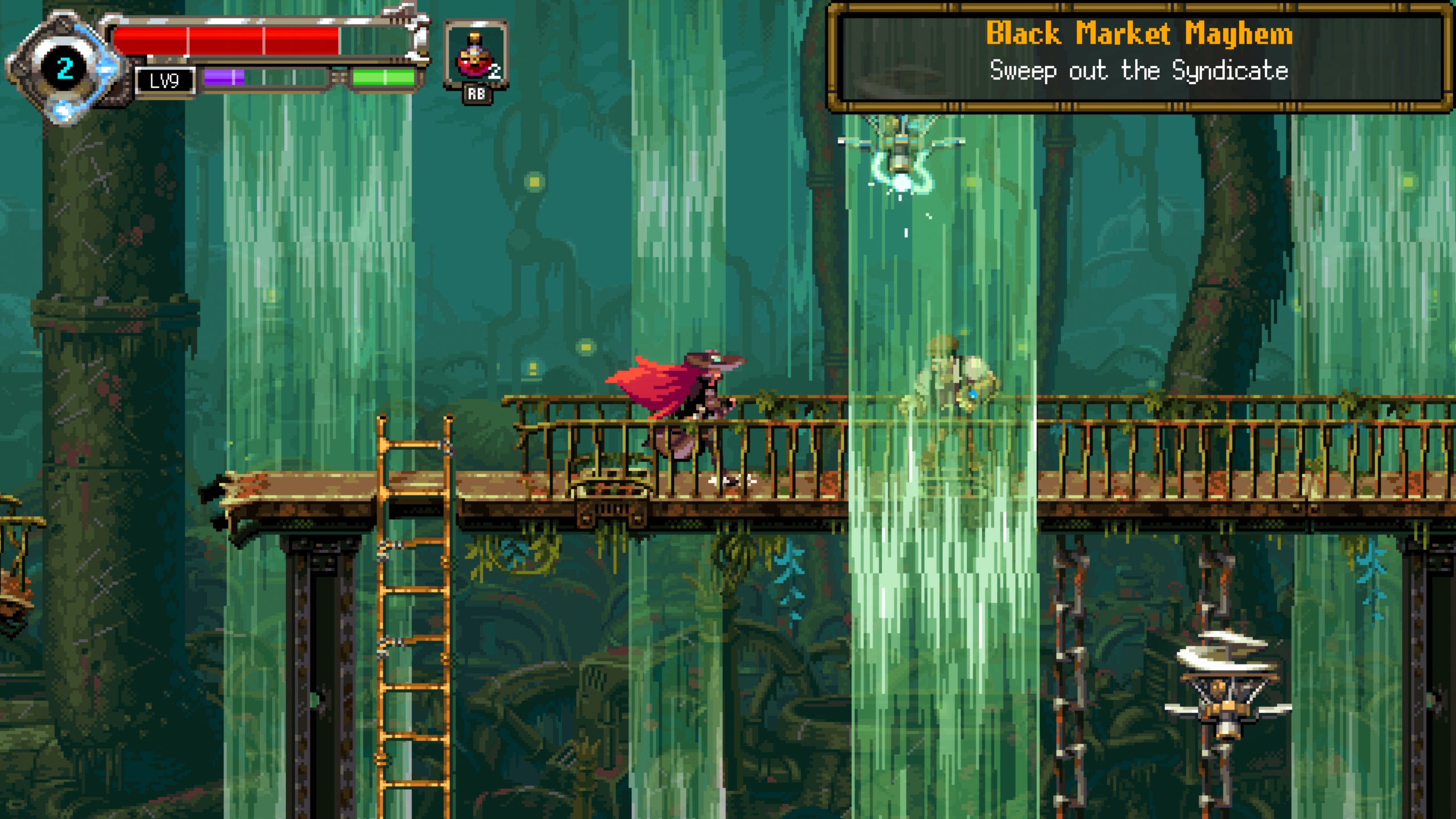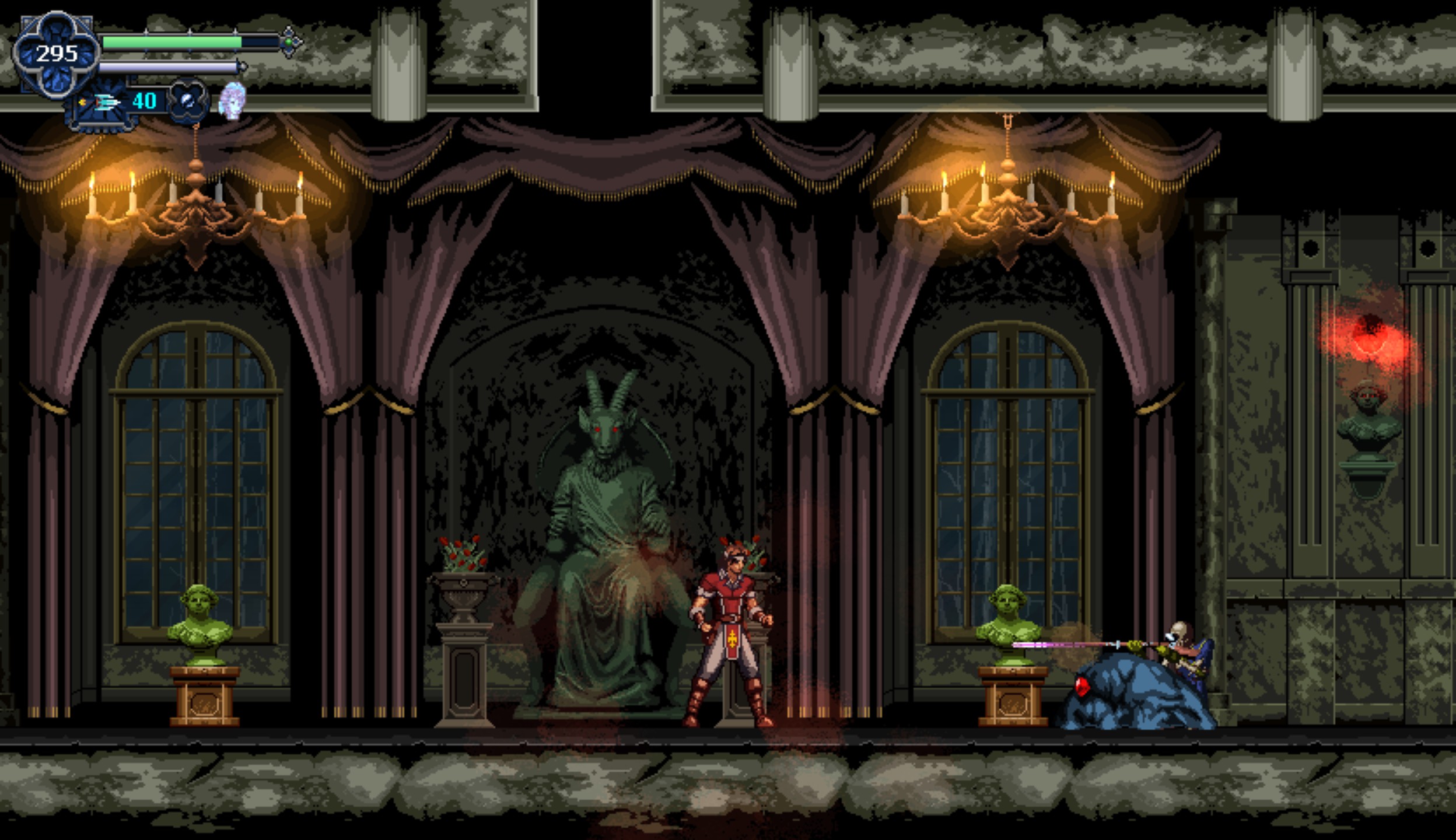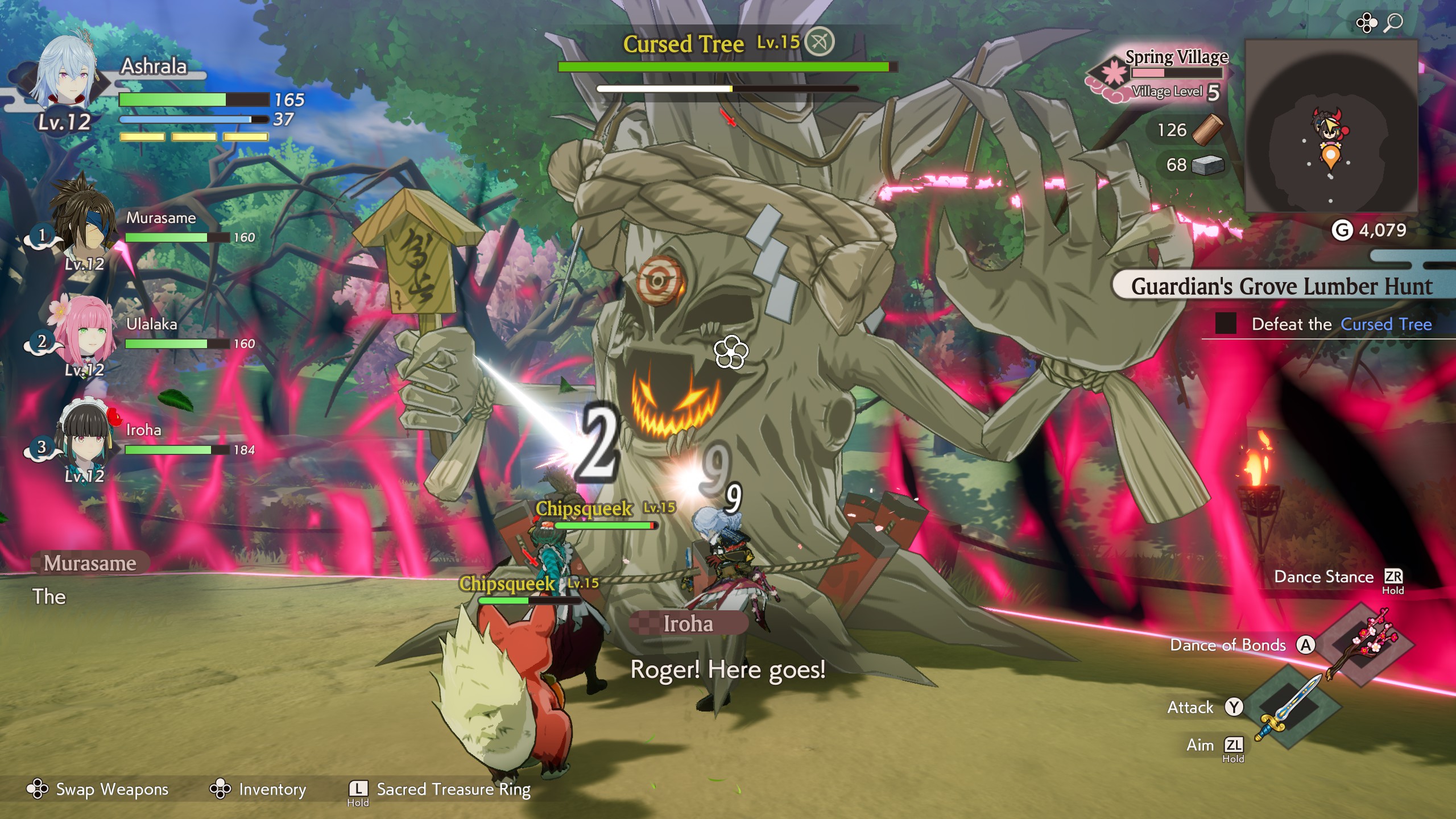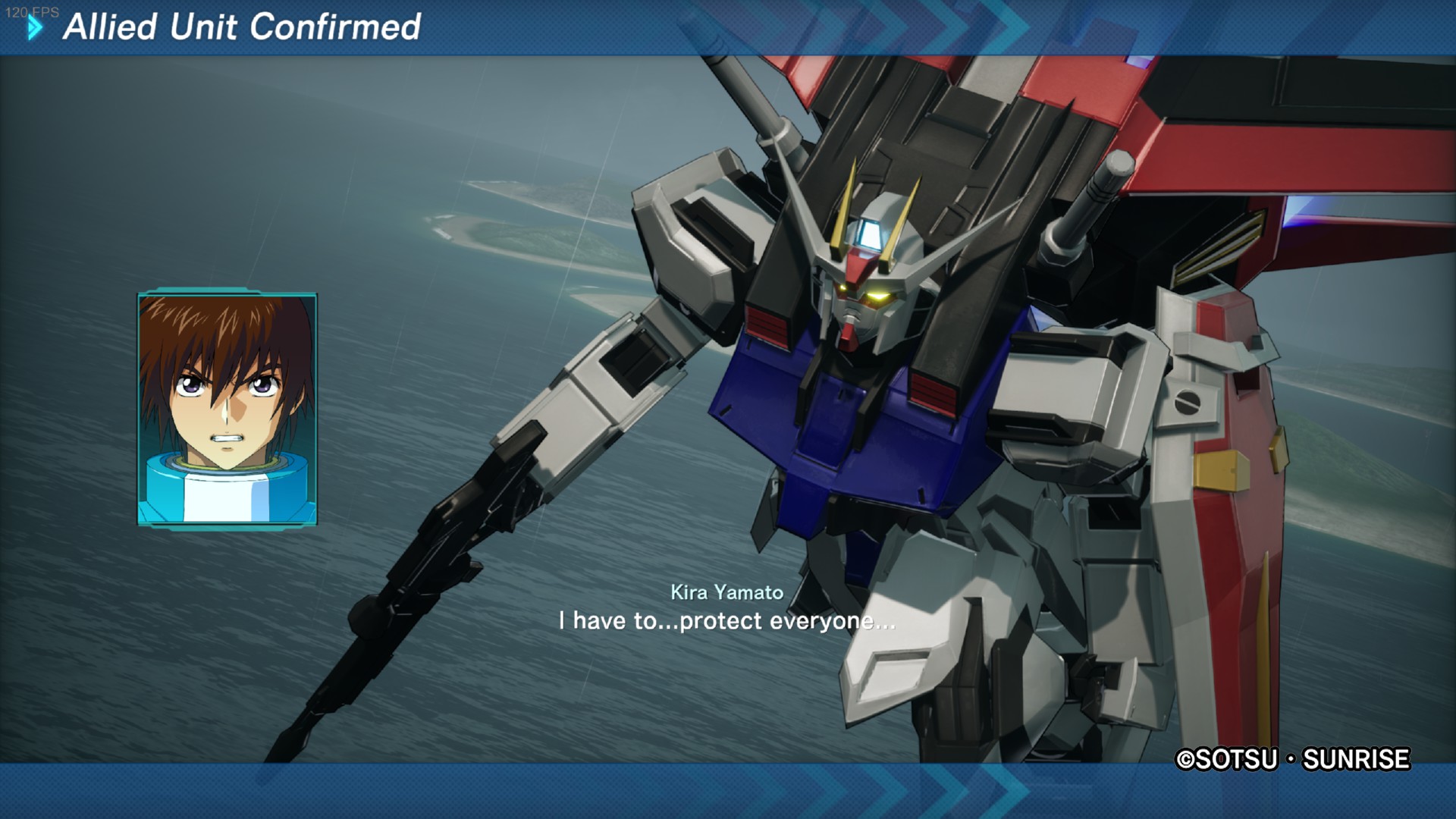I’m a simple man. I see a pixel art Metroidvania, I play it. The long-delayed Gestalt: Steam & Cinder is finally out and it’s a good time overall. However, it isn’t as much of a Metroidvania as you might be hoping. While it’s not as railroaded as, say, 9 Years of Shadow, the game is extremely linear and has a very in-depth narrative compared to most entries in the subgenre. There is some additional exploration to be had, but there’s a very clear forward push here with a focus on plot. As such, the game is more easily recommended to folks who are looking for more of an action platformer than ones that want to explore.
There’s probably more dialogue in Gestalt: Steam & Cinder than I think I’ve ever seen in a game like this. The action is frequently interrupted with cutscenes showing characters speaking to one another in wholly separate locations. To the game’s credit, the story and characters are well-written and enjoyable. You play as a woman who obtains powers after stepping onto a device that sends her down a rabbit hole involving a war between two countries, where the fate of the world hangs in the balance. I did notice a fair amount of typos in the text, however, which I found strange given how much effort was expended on the dialogue itself.
The game’s presentation is pretty terrific, with a lot of excellent sprites and backgrounds. Sprites animate smoothly and the locations are all bursting with character. The controls are similarly strong. The main character, Aletheia, has a multi-hit sword combo that feels responsive, as well as forward and backward dashes that grant i-frames, although these don’t cancel Aletheia out of her sword strikes. She also has a gun that has two separate functions. Enemies (including bosses) can be put into a break state, predominately by using one of the bullet functions. These, as well as a stronger sword strike, can only be used if energy reserves gained from damaging foes are filled.
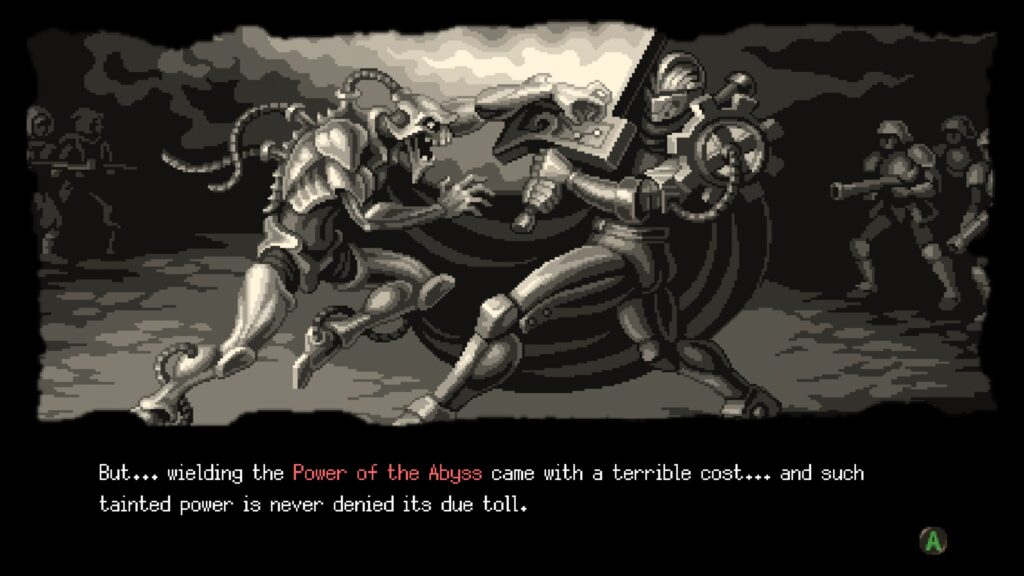
There’s also quite a bit of platforming, which feels similarly responsive and enjoyable. While Aletheia doesn’t end up becoming the most mobile protagonist by any metric, I still felt that she did precisely as I wanted most of the time and her movement kit is still satisfactory. Most of the platforming isn’t all that demanding, save for some optional challenges, usually revolving around finding missing dogs (the game’s main collectible.) Gestalt: Steam & Cinder isn’t particularly difficult either, but it does get decently challenging near the end, even if the final few bosses that cap the story off are surprisingly easy for the most part.
As for how much of a Metroidvania it is, it takes two hours into the game’s six-to-seven hour runtime before you can even really go back and explore if you want. However, there are only a handful of areas and there’s not a ton of off-the-beaten-path exploration to be done. That isn’t to say what’s here is paltry, but the focus is very clearly on forward momentum. Regardless, the structure is very much built around major plot points, so this is a completely linear game, ergo Metroidvania devotees won’t find a new fix here.
The game has side quests too, although they’re of the typical rote variety. Job boards task you with killing a certain number of a specific enemy type, while you can also get quests from NPCs that want you to return to them with an item. This all seems perfunctory and practically tacked on, but at least the job board quests give you a skill point, as does finding new save points. Skill points are used on the gem board, which increases Aletheia’s stats or unlocks new moves. Simply exploring most of the map and fighting enemies gave me enough skill points to complete the gem board, so you don’t really have to pick and choose with any of this. Additionally, you’ll pick up a new point once you have enough experience.
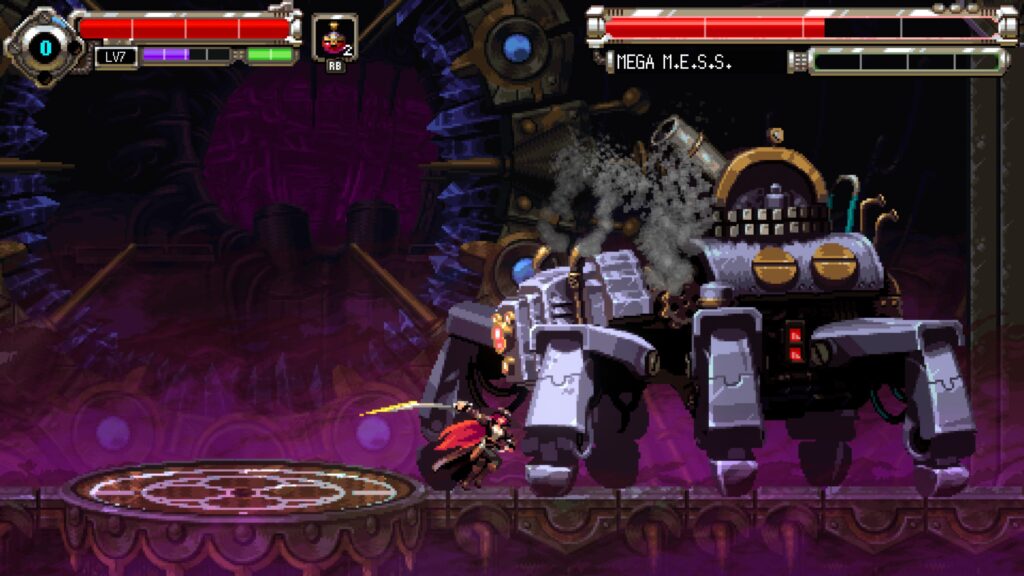
Aletheia can equip up to four accessories, the best of which need to be crafted from other accessories. Healing uses an item akin to the ones in Dark Souls, and you can increase the number of these you have by finding an item. Due to all of this, Gestalt: Steam & Cinder does feel quite fully featured, even if it does come off a bit light in the end. Plus, despite how much dialogue there is throughout most of the game, the ending is disappointing, brief, and anti-climactic, which was surprising. It’s not much of a Metroidvania and it’s not all that lengthy, but this is still a very good game as long as you don’t mind hefty chunks of dialogue.
Gestalt: Steam & Cinder: While not heavy on exploration and quite linear, Gestalt: Steam & Cinder is still an entertaining action platformer with a solid story and great art. – Andrew Farrell
Check out more of our latest reviews:
Beyond Good and Evil: 20th Anniversary Edition PC review | Riven PC review – Into the pages again | Shin Megami Tensei V: Vengeance PC review – Emphasis on “rebirth” |

